Evaluation of CHSE-Based Homestay Business Management in Ubud Tourism Area
on
E-Journal of Tourism Vol.8. No.2. (2021): 237-249
Evaluation of CHSE-Based Homestay Business Management in Ubud Tourism Area
Ida Ayu Karina Putri1*, Agung Suryawan Wiranatha2, I Gusti Ayu Oka Suryawardani2
1Master Program in Tourism, Udayana University, Indonesia 2Center of Excellence in Tourism, Udayana University, Indonesia
*Corresponding Author: idaayukarinaputri@gmail.com
DOI: https://doi.org/10.24922/eot.v8i2.78277
Article Info
Submitted:
August 29th 2021.
Accepted:
September 26th 2021.
Published:
September 30th 2021
Abstract
The Bali Provincial Government together with the Indonesian Ministry of Tourism and Creative Economy in the recovery of tourism in the new normal era, by implementing the certification of cleanliness, health, safety and environmental sustainability also known as CHSE in the management of tourism business including homestay business in Ubud Tourism Area. This research aims to evaluate homestay business management during Covid-19 pandemic and to evaluate tourism recovery efforts in Ubud Tourism Area. The research was conducted by observing 30 homestays in the Ubud Tourism Area. Data analysis technique was using qualitative and quantitative descriptive analysis. The results showed homestay business management in the Ubud Tourism Area has already a good implementation of CHSE management. Tourism recovery efforts in Ubud Tourism Area were ‘We Love Bali’ campaign, the establishment of a green zone and socialization for strengthening the destination organization management-governance destination that have been well implemented.
Keywords: covid-19 pandemic, tourism management , recovery plan, new normal
INTRODUCTION
The Covid-19 outbreak occurred in early 2020 which spread rapidly causing a major impact on the global tourism industry due to restrictions on community activities and restrictions on travel. Restrictions on tourism activities worldwide have caused a drastic decrease in the number of foreign tourist arrivals to Bali Province since the beginning of April 2020 which has an impact on Bali’s economic growth because the tourism sector contributes more than
50% to the GRDP of Bali Province (Merdeka, 2020).
Recovery efforts carried out by the Provincial Government of Bali and the Government of Indonesia through the Ministry of Tourism and Creative Economy in the recovery of tourism in the new normal era are encouraging the arrival of domestic tourists and local visitors by implementing health protocols in tourism activities by issuing standard and certification programs for cleanliness, health, safety, and environment sustainability, which is then
abbreviated as CHSE with the label of “In-donesiaCare” which has been regulated in the Regulation of the Minister of Tourism and Creative Economy of the Republic of Indonesia Number 13 of 2020 on tourism businesses, including the homestay business.
Homestay businesses in the Ubud Tourism Area, from the beginning of tourism development in Bali to the Covid-19 pandemic, still maintain services and hospitality with a culture-based approach to the local community so that homestay businesses can be a safe and comfortable accommodation business choice, it is necessary to conduct research on management evaluation homestay business in the new normal era. Based on the urgency of this background, this article has the objectives of 1) to analyze the performance of homestay businesses during the Covid-19 pandemic, 2) to evaluate the management of CHSE-based homestay businesses in the Ubud Tourism Area, and 3) to formulate a recovery plan for these businesses. homestay business in the new normal era in the Ubud Tourism Area.
LITERATURE REVIEW
The theory used in this study is management theory (Terry, et al 2020) and crisis management theory (Ritchie, 2004). According to Terry et al. (2000) the achievement of predetermined goals is to use the help of human resources and other sources. The management function in this theory consists of 1) the planning function, which is to determine the goals to be achieved in the future, 2) the organizing function, namely classifying and determining activities and assigning responsibility to certain parties to carry out these activities., 3) the actuating function by determining the need for human resources through development to achieve the goals to be achieved and 4) the controlling function by measuring the
implementation and deviations that occur in achieving the goals. Management theory is used to evaluate the management of homestay businesses in the Ubud Tourism Area.
Crisis management is a strategic planning process for crises which consists of a process that changes some risks from negative conditions with the aim that organizations can control activities (Banks in Rini Sugiarti, 2012), Crisis management framework according to Fink (1986) in Ritchie , (2004) consists of four stages, namely 1) prodromal stage or the stage when a crisis occurs and cannot be avoided, 2) actuate stage or stages of crisis that cannot be handled and cause losses, 3) chronic stage or stages of post-crisis recovery conditions such as recovery, and 4) resolution is the stage of routine recovery back to a better or new direction. The chronic stage represents a crisis condition for homestay businesses in the new normal era in the Ubud Tourism Area.
METHODS
This research was conducted in the Ubud Tourism Area, Gianyar Regency with a coverage area of Ubud, Tegallalang and Payangan Sub-Districts. This research method uses a qualitative method with an exploratory approach. An exploratory research approach is used to examine the phenomenon of the performance of homestay businesses during the Covid-19 pandemic and the application of health protocols by homestay businesses in the new normal era in the Ubud Tourism Area. Data collection techniques were carried out by observation, surveys through in-depth interviews and documentation. Population and sample collection techniques were carried out using purposive sampling. The population in this study were the owners or managers of homestay businesses in the Ubud Tourism Area, which consisted of a total of 30
homestays. The technique of determining informants is to determine key informants with the consideration of informants knowing the condition of the Ubud Tourism Area, including the Chairperson of the Ubud Homestay Association, the Chairperson of the Indonesian Hotel and Restaurant Association (PHRI) of Bali Province, the Gianyar Regency Tourism Office, Community Leaders from Puri Saren Agung Ubud and the owner of ARMA Museum.
The data analysis technique used in this study was quantitative descriptive by narrating statistical results from the evaluation of homestay business management in the Ubud Tourism Area. The quantitative descriptive analysis technique uses a Likert scale using five points of assessment to measure the readiness of homestay owners in implementing CHSE-based management through observational guidance. Observa-
tions consist of 16 parameters which are presented in Table 1.
Overview of Homestay Businesses in Ubud Tourism Area
The origin of the development of homestay businesses as the epicenter in the Ubud Tourism Area homestay has been known to have started in the early 1930s with the arrival of foreign painters who stayed at the Ubud Palace. Foreign tourists staying at that time were treated like family and were not treated as foreigners. The service and friendliness during their temporary stay at Puri Agung Ubud caused many foreign tourists to have the same experiences. Along with the times, Puri Ubud has inspired the local people in Ubud Village to change their residence into a temporary lodging place for tourists so that they can benefit economically and maintain arts and
Table 1. Parameters of CHSE-Based Homestay Management Observation Guidelines in the Ubud Tourism Area
Parameter
Cleaning with disinfectant on banisters, tourist facilities, and tourist items.
Provide hand washing facilities with soap/handsanitizer that are easily accessible to guests.
Cleaning the Air Conditioner (AC) filter regularly.
Ensure that public spaces and goods are free of vectors and disease-carrying animals.
Checking the temperature and spraying disinfectant for guest luggage.
The officer or employee of the temperature checker uses a faceshield.
Require workers/HR and guests to wear masks.
Set the distance on the seat or floor in the reception unit.
Put up an appeal board or poster for the prevention of Covid-19
Provide covered trash cans and waste sorting.
Implementing a non-cash payment method (cashless payment).
Cooperating with health facilities.
Implementing Standard Operating Procedures for Managing Homestay Businesses during the Covid-19 Pandemic.
Dissemination of information to Maintain a Clean and Healthy Lifestyle
Coordinating with the local Covid-19 Task Force
Always seek and comply with health regulatory information from the government and related agencies.
culture and the existence of a homestay business spreads in every coverage area in the Ubud Tourism Area.
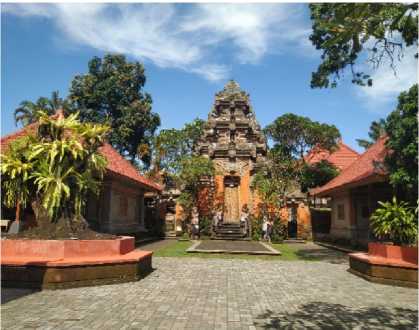
Figure 1. Ubud area of Puri Saren Agung Source: Research Documentation, 18 April 2021
Harmony as an important aspect in achieving happiness is what homestay owners in the Ubud Tourism Area are trying to realize by applying the Tri Hita Kara-na philosophy. The elements of Tri Hita Karana are modified into parahyangan, palemahan and pawongan. Suteja (2012) in Wiweka (2014) explains that the philosophy of Tri Hita Karana is three sources of happiness or well-being which consists of three aspects, namely the spiritual aspect (parahyangan) which is a harmonious and balanced relationship between humans and
God, the social aspect (pawongan) is harmonious relationship between humans and other humans and environmental aspects (palemahan) is the relationship between humans and the environment. The homestay business management from the results of observations and interviews with homestay business owners in the Ubud Tourism Area can be seen in Table 2.
The parahyangan aspect in Table 4 can be seen from the presence of sanggah, the family shrine and religious ceremonies carried out by homestay owners for spirituality and fostering a good relationship with God by carrying out traditional ceremonies and rituals that grow in Bali. Sanggah and traditional ceremonies from the owner’s family become a cultural sight when guests are in the Balinese Traditional Homestay compounds as shown in Figure 2.
Table 2. Implementation of Tri Hita Karana in the Management of Homestay Businesses in the Ubud Tourism Area
|
Parahyangan (Maintaining a harmonious relationship with God) |
Pawongan Palemahan (Maintaining harmonious (Maintaining a harmonious relations between humans) relationship with the environ ment) |
|
The homestay owners hold a prayer ceremony Limiting the activities of tourists in the procession of religious ceremonies |
The principle of equity Use of local building materi- (brotherhood) between home- als stay owners and employees Maintain the cleanliness and Involvement of local residents beauty of the local environ-as homestay employees ment Special layout for tourists in Work to conserve potential the homestays and resources |
Source: Field Survey Results, 19 April 2021
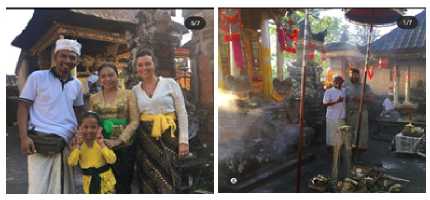
Figure 2. Foreign Tourists Celebrate Ga-lungan Day with the Homestay Owner Source: Instagram of Nyoman Sandi Guest House
The foreign tourist couple in Figure 2 is celebrating Galungan Day with Pande Gunadi Putra’s family as the homestay owner. The foreign tourists in their uploads on Instagram media told the procession of the prayer ceremony and stated that participating in the celebration of the holiday was an unforgettable experience because they could recognize and understand the culture practiced in Bali as well as an authentic experience that cannot be experienced if they had stayed in hotels in general.
Second, the pawongan aspect is seen in the application of the principle of equity between owners, administrators, homestay employees, and the involvement of local communities as employees. The pawongan principle can also be realized in the form of providing special services by providing valuable experiences offered as shown in Figure 3.
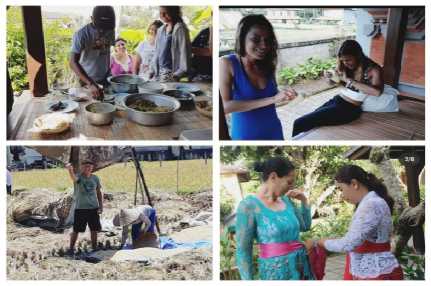
Figure 3. Tourist Activities at Nyoman Sandi Guest House
Source: Instagram of Nyoman Sandi Guest House
The picture above shows the activities of foreign tourists while staying at Nyoman Sandi Guest House. The activities offered include cooking class activities such as making Balinese culinary specialties, lawar, making and decorating prayer facilities such as canangs, offerings, rice harvesting activities in the rice fields and interacting with local farmers. Tourists can try to use the traditional clothes of the archipelago
such as using kebaya, cloth, and scarves. Experience is the first important element for tourists staying in homestays apart from room facilities. Tourists can interact with local families, eat Balinese food, and live life like a local is something that is not possible in a hotel. The owner of a homestay business in the Ubud Tourism Area in the palemahan aspect is reflected in physical care to maintain the sustainability and beauty of the environment. Homestay care can be done by doing spiritual cleansing or purification through a traditional ceremony procession to minimize the influence of leteh, which means dirty or bad conditions that need to be neutralized through religious ceremonies that can foster a sense of security and comfort for tourists, employees, and homestay owners.
RESULTS AND DISCUSSION
Homestay Business Performance during the Covid-19 Pandemic in Ubud Tourism Area
The Covid-19 pandemic has had a major impact on all sectors, including the tourism sector. The Ubud Tourism Area is a center for arts and cultural tourism, feeling the impact of the Covid-19 pandemic, such as shop closures, job losses, and decreased income. The accommodation business in the Ubud Tourism Area must be temporarily closed because there are no tourists staying, as is the case with homestay businesses. The declining performance of homestay businesses during the Covid-19 pandemic includes a decrease in occupancy, operational changes, and a decrease in prices in managing homestay businesses during the Covid-19 pandemic.
The Covid-19 pandemic has caused hotel occupancy rates in Bali to drop drastically. Based on interviews with homestay business owners in the Ubud Tourism Area, there was a decline in homestay business occupancy in Ubud District by 80%, whi-
le before the pandemic the occupancy rate reached 90% to 100%. There was a 90% decrease in occupancy in Tegallalang and Payangan sub-districts because the two sub-districts are alternative destinations if accommodation businesses in Ubud District are fully booked or crowded.
Changes in the operation of homestay businesses in the Tourism Area during the Covid-19 pandemic because there is an adaptation period in the new normal era. Homestay business owners must develop standard operating procedures during the Covid-19 pandemic for managers, employees, and tourists. Standard operating procedures for homestay managers or owners include setting operating hours or the deadline for tourist acceptance, limiting the number of tourists in one room, the need to use masks and the flow of tourist entrances.
The Covid-19 pandemic has caused several accommodation businesses to temporarily close their operations or reduce prices and provide vouchers for tourists who stay overnight to generate income during the Covid-19 pandemic. Accommodation businesses in the Ubud Tourism Area which consist of homestay businesses, villas, hotels and resorts provide the best offers at lower prices compared to conditions before the Covid-19 pandemic. Competition in price offers between accommodation businesses is due to price declines, which is one of the efforts to survive during the pandemic, as has been done from star hotels to homestay businesses. A homestay business in the Ubud Tourism Area with complete facilities such as a bedroom, swimming pool, breakfast, Air Conditioner (AC) faci-
lities and community activities before the Covid-19 pandemic which has a normal price range of Rp. 400,000/night up to Rp. 650.000/night must compete with five-star hotels that offer the same price as the normal price range for homestay businesses. This causes the homestay business to have to reduce the price to half of the normal price so that the business can survive for the cost of maintaining facilities.
The results of observations and surveys conducted show that the normal homestay price range before the Covid-19 pandemic and the promo price during the Covid-19 pandemic per night in the Ubud Tourism Area can be seen in Table 3.
The comparison of homestay prices before the pandemic and during the pandemic in Table 5.1 provides an overview of the change in homestay rates in normal situations and during the Covid-19 pandemic it fell by 50% with the hope that domestic tourists could stay because the market for new normal tourism is domestic tourists and the local people.
Homestay businesses in their performance during the Covid-19 pandemic were circumvented by packing staycation packages. Staycation is a form of vacation or recreation in a tourism area that has a relatively close distance, with a short time and a more affordable price. The packaging of the staycation trend in the homestay business is to offer room use packages with conditions for check-in and check-out on the same day (Day Use) and the use of rooms for 2 days 1 night (One Night Stay) as offered by Gunung Merta Bungalows in Figure 4.
Table 3. Price Range Comparison of Homestay Businesses Before and During the Covid-19 Pandemic in Ubud Tourism Area
|
Normal Prices |
Prices during the Covid-19 Pandemic |
|
Rp. 200.000 – Rp. 300.000 |
Rp 100.000 – Rp150.000 |
|
Rp. 350.000 – Rp. 450.000 |
Rp. 175.000 – Rp. 250.000 |
|
Rp, 500.000 – Rp.650.000 |
Rp. 250.000 – Rp. 350.000 |
Source: Research Survey Results, 2021

Figure 4. Offers Staycation Packages at
Gunung Merta Bungalows Ubud
Source: Instagram of Gunung Merta Ubud
The staycation offer made by Gunung Merta Bungalows which can be seen with Instagram media in Figure 4, is to offer packages such as one night stay and daycation. One night stay package with facilities to stay in a superior room, get a welcome drink, and access to a swimming pool. The daycation or daypass package consists of a daycation with lunch (stay in a superior room with a duration of 5-7 hours, lunch, pool access and wi-fi access), birthday daycation (stays in a superior room with a duration of 5 to 7 hours, welcome drink, bed decoration, birthday cake, wi-fi access and swimming pool), day cation with BBQ (stay in superior room, BBQ style lunch, free wi-fi access and swimming pool access.
CHSE-Based Homestay Business Management Evaluation
Management of CHSE-based homestay businesses in the Ubud Tourism Area in an effort to restore tourism was analyzed using Management theory by (Terry, et al. 2002) which consists of four functions, namely (1) planning, (2) organizing, (3) actuating, and (4) monitoring.
-
(1) Planning
Recovery efforts carried out by the Government of Indonesia through the Ministry of Tourism and Creative Economy of Indonesia in the recovery of tourism in the new normal era, namely attracting domestic tourists and local visitors to visit by implementing health protocols in tourism
activities. The planning function carried out by the Ministry of Tourism for the Creative Economy is to develop health protocol parameters from June 2020 to July 2020 by collaborating and synergizing with tourism industry stakeholders, central and regional government actors and academics.
The Ministry of Tourism and Creative Economy (Kemenparekraf) issued Regulation of the Minister of Tourism and Creative Economy of the Republic of Indonesia Number 13 of 2020 concerning cleanliness, health, safety, and environment sustainability certification, which was then abbreviated as CHSE with the label “Indo-nesiaCare” to measure readiness for implementing health protocols and issuing guidelines. CHSE implementation in tourism businesses including tourist attractions, hotels, tourist lodges, restaurants, white water rafting, tourism transportation businesses, diving tours, and golf tours in the new normal era.
Planning for the implementation of health protocols in homestay businesses in the Ubud Tourism Area begins with the approach of association members, then asks the readiness of each member of the association, and prepares health protocols according to the implementation guidelines by the Ministry of Tourism and Creative Economy. The purpose of the CHSE certification is to control the spread of the Covid-19 virus and build the confidence of tourists and visitors to feel safe while in the homestay.
-
(2) Organizing
The function of organizing the management of CHSE-based Homestay Businesses in the Ubud Tourism Area is to determine the responsibilities and obligations of stakeholders in the CHSE verification and certification process. The organization of homestay businesses is led by the Gianyar Regency Tourism Office, which is responsible for issuing CHSE certification
at the regional level, approaches and disseminates homestay businesses to implement health protocols, coordinates with the Gianyar Regency Hotel and Restaurant Association (PHRI) and Ubud Homestay Association (UHSA) in distributing information related to CHSE verification and supervising the implementation of CHSE parameters for homestay businesses in the Ubud Tourism Area. PHRI Gianyar Regency has the responsibility as a team of verifiers for the homestay business assessment process that will carry out the CHSE certification process and is responsible for providing the latest information and policies from the government and related agencies to affiliate members including UHSA. UHSA has the responsibility to record association members by taking a personal approach to implementing a comprehensive CHSE-based health protocol.
-
(3) Actuating
The actuation in the management of the CHSE-based homestay business in the Ubud Tourism Area includes steps to achieve goals, namely by carrying out the verification and certification process carried out by the Ministry of Tourism and Tourism Economy and the Gianyar Regency Government as shown in Figure 5 below.

Figure 5. Tourism Business Management
Verification and Certification Flow
Source: https://chse.kemenparekraf.go.id
Figure 5. describes the steps in the CHSE-Based Management verification and certification process for Tourism Businesses. The CHSE-Based Homestay Business Management verification and certification process begins with registering a homes-
tay business identity and account activity on the official website of the Ministry of Tourism and Creative Economy. Registration and account activity is done by registering an active email address and activating an account. The next step is to conduct an assessment according to the CHSE Implementation Guidelines for Homestay Businesses. The assessment process can be done online. Homestay owners can download the questionnaire or assessment form provided on the Ministry of Tourism and Creative Economy website.
For homestay businesses that meet the assessment criteria, the homestay business owner will be directed to upload a selfdeclaration statement by sending the results of the self-assessment to the system which will be forwarded to the Auditor Team. The self-assessment audit process will be carried out by a team of auditors consisting of a national integrated team (Ministry of Tourism and Creative Economy, Ministry of Health, and the Association of Indonesian Hotels and Restaurants), the Bali Provincial Government and the Gianyar Regency Government. The self-assessment statement that has been carried out by the homestay owners will be forwarded to the auditor to go to the process stage by following up on filling out the questionnaire and supporting evidence that has been submitted by the homestay business owners. Homestay owners who pass the validation process can fill out a self-declaration statement and get an “I do Care” Certificate and Labeling by an Indonesian certification agency, but homestay owners who do not pass will be given a recommendation by the auditor team to draw up corrective steps according to the parameters that have not been met.
The number of tourism businesses that received CHSE certification in Bali Province based on data contained in the Ministry of Tourism and Creative Economy’s website consists of 1006 businesses consisting
of 41 tourist attractions, 215 homestay and tourist cottage businesses, 528 hotels, 178 restaurant units and 9 transportation service businesses. The homestay and tourist cottage businesses located in the Ubud Tourism Area with a total of 399 units whose distribution can be seen in Figure 6.
Usaha Htunestay atau Pondok Wisata Tersertifikasi CHSE (I DO CARE) di
K awa s an P arrwi s a t a Ubud
-
■ Kecar∏3zar∣ Ubud HKecarriaEariTegciIaIarig ∣ KecarnaEan Paycrgari
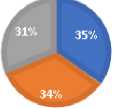
Figure 6. Percentage of CHSE Certified (I Do Care) Homestays or Tourist Cottages in Ubud Tourism Area
Source: Ministry of Tourism and Creative Economy, 2021
Figure 6. shows a chart of the percentage of CHSE (I Do Care) certified homestay businesses with a total of 139 units (35%) in Ubud Sub-District, 135 units (34%) in Tegallalang Sub-District and 125 units (31%) in Payangan Sub-District. The percentage of the number of homestay businesses in the Ubud Tourism Area indicates that the actuating function from the local government to the homestay business owner has been effective.
-
(4) Monitoring
Monitoring is a stage in management which is the process of observing activities to ensure standard procedures with the aim of planning and taking corrective steps if there are deviations. Monitoring function is carried out on the management of homestay business in the Ubud Tourism Area through monitoring the implementation of the CHSE Readiness protocol from the Ministry of Tourism and Creative Economy that has been carried out by homestay bu-
sinesses by coordinating and involving the government at the ministry level, the Bali Provincial Government, and the Gianyar Regency Government based on their functions and responsibilities.
Management Evaluation of CHSE-Based Homestay Businesses in Ubud Tourism Area
Evaluation of the implementation of the protocol for cleanliness, health, safety, and environmental sustainability was carried out on 30 homestay businesses in the Ubud Tourism Area by conducting interviews and observations with homestay business owners.
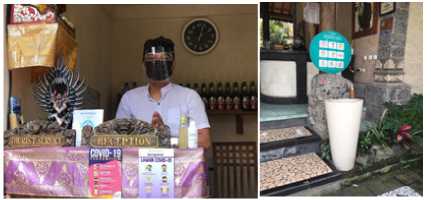
Figure 7. Application of the CHSE Protocol in Homestay Business
Source: Research Documentation, 10 April 2021
Observations were made using observation guidelines that were compiled based on the parameters contained in the self-assessment with the guidelines of the Ministry of Tourism and Creative Economy Regulation No. 13 of 2020 concerning Standards and Certification of Cleanliness, Health, Safety, and Environmental Sustainability of the Tourism Sector in the Corona Virus Disease Pandemic. The results of the evaluation of the management of the homestay business management in the Ubud Tourism Area can be seen in Table 4.
Table 4. shows that the level of implementation of the CHSE-Based Homestay Business Management Procedures in the Ubud Tourism Area is categorized as good with a percentage of 76.20%
Table 4. Evaluation of the Implementation of CHSE-Based Homestay Business Management Procedures in the Ubud Tourism Area
|
Observation Parameters |
Score |
(%) |
Category |
|
Cleaning with disinfectant on banisters, tourist facilities, and tourist items. |
114 |
76 |
Very good |
|
Provide hand washing facilities with soap/handsani-tizer that are easily accessible to guests. |
130 |
86,67 |
Good |
|
Cleaning the Air Conditioner (AC) filter regularly. |
117 |
78 |
Good |
|
Ensure that public spaces and goods are free of vectors and disease-carrying animals. |
98 |
65,33 |
Good |
|
Checking the temperature and spraying disinfectant for guest luggage. |
98 |
65,33 |
Good |
|
The officer or employee of the temperature checker uses a faceshield. |
97 |
62,67 |
Good |
|
Require workers/HR and guests to wear masks. |
142 |
94,67 |
Very good |
|
Set the distance on the seat or floor in the reception unit. |
76 |
50,67 |
Enough |
|
Put up an appeal board or poster for the prevention of Covid-19 |
93 |
62,00 |
Good |
|
Provide covered trash cans and waste sorting. |
100 |
66, 67 |
Good |
|
Implementing a non-cash payment method (cashless payment). |
99 |
66,00 |
Good |
|
Cooperating with health facilities. |
128 |
85,33 |
Very good |
|
Implementing Standard Operating Procedures for Managing Homestay Businesses during the Covid-19 Pandemic. |
137 |
91,33 |
Very good |
|
Dissemination of information to Maintain a Clean and Healthy Lifestyle |
138 |
92 |
Very good |
|
Coordinating with the local Covid-19 Task Force |
140 |
93,33 |
Very good |
|
Always seek and comply with health regulatory in- |
140 |
93,33 |
Very good |
|
formation from the government and related agencies. Level of Implementation of CHSE-Based Homestay Business Management Procedures in Ubud Tourism Area |
Good | ||
|
1.946 |
76. 83 | ||
Source: Data Analysis Results, 2021
which means that the homestay business in the Ubud Tourism Area has complied with and implemented the parameters contained in the implementation of the CHSE protocol well, but still has to be improved, such as the parameter Spacing the Seat or Floor in the Reception Unit with a score of 50.67% which means that these parameters
have been applied enough. The results of observations and interviews show that homestay business owners are of the opinion that adjusting the distance in the homestay business area is not necessary because the homestay is a Balinese compound building concept with an open area so that tourists do not need to keep their distance because
tourists can wait in the bale daja (north side building) or bale dangin (east side building) so as not to cause a crowd.
Homestay Business Recovery Plan in Ubud Tourism Area in the New Normal Era
Implementation of the CHSE Protocol in the ‘We Love Bali’ Campaign
The Provincial Tourism Office and the Ministry of Tourism and Creative Economy are restoring the tourism sector in Bali Province by inaugurating the ‘We Love Bali’ campaign. ‘We Love Bali’ is an educational program on the application of CHSE-based health protocols with the aim of creating tourist safety in tourist attractions and building safety awareness in the mindset of tourism actors and tourists.
The Ubud Tourism Area was part of the ‘We Love Bali’ campaign held on November 25, 2020 to November 26, 2020 through the visit of participants to tourist attractions in Ubud Sub-District, Tegallalang Sub-District and Payangan Sub-District. Participants got facilities of accommodation for two nights at a hotel or homestay that have been determined by the committee. Participants visited tourist attractions that had implemented the CHSE protocol including Puri Saren Ubud (Ubud), Ceking Rice Terrace (Tegallalang) and Sekar Bumi Farm (Payangan). Visits to tourist attractions were ended by going to the accommodations that have been determined by implementing health protocols.
The accommodation businesses in Ubud District that have been selected are those that have implemented the CHSE protocol and are ready to serve We Love Bali participants. The procedure for accepting ‘We Love Bali’ participants using the CHSE protocol from checking temperature, cleaning participants’ belongings with disinfectant liquid, filling out participant check lists, providing holy places with soap and hand sanitizer, maintaining distance
and using masks have been implemented. The response of the participants was very positive in the ‘We Love Bali’ activity. The We Love Bali campaign can be a promotional medium for tourism recovery by ensuring that tourist attractions, restaurants, and accommodation businesses are safe to visit because they have implemented health protocols.
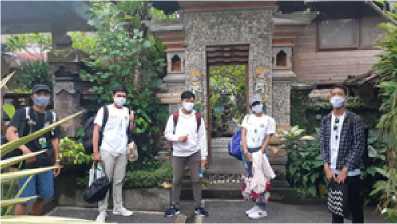
Figure 8. We Love Bali participants taking a group photo at the Homestay
Source: Ubud Homestay Association Archives (2020)
Ubud Tourism Area as a Green Zone
The Bali Provincial Government has prepared a Covid-19 Free Green Zone which will be used as a Free Covid Corridor (FCC). The Covid-19 Free Green Zone is a safe zone for Covid-19 safe tourist travel by establishing a healthy zone through a vaccination program for the community, tourism actors and people who live and work in tourism areas. The implementation of the Covid-19-free green zone has been realized in three areas, namely in Ubud, Nusa Nusa and the Sanur Tourism Area.
The Indonesian government supports the opening of a green zone in the Ubud Tourism Area by providing 47,045 doses of vaccine. Mass vaccination is carried out by tourism workers as the first step in the plan to open tourism in Bali. The mass vaccination program carried out in the Ubud Tourism Area is for the trust of tourists who will visit, in addition to mass vaccinations, there are improvements to facilities by adding a PCR lab to facilitate the process of
monitoring tourists in an effort to control Covid-10. The Bali Provincial Government will monitor the effectiveness of vaccines in the three regions in June 2021. If there is a graph of a decline in Covid-19 cases, foreign tourism will be opened by conside-
ring countries that are still volatile.
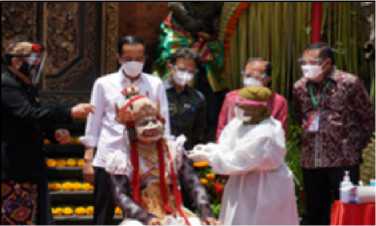
Figure 9. President Jokowi’s Visit at Puri
Saren Ubud
Source: Ministry of Health, 2021
Dissemination of Strengthening Regional Destination Governance
The Ministry of Tourism and Creative Economy is strengthening the Destination Organization Management (DMO) Structure and Destination Governance at the Local Government Level (Destination Governance) by holding a ‘Kick Off Program for Strengthening Destination Management Organization Governance (DMO-DG). It is a structured and synergistic management of tourism destinations that includes the functions of coordinating, planning, implementing, and controlling organizations in an innovative and systematic way through the use of integrated networks, information, guided technology with the participation of the community, tourism associations, tourism industry, academics, and government that has process objectives and benefits for the community (Ministry of Tourism 2013).
The purpose of the dissemination of Strengthening the Structure and Governance of Regional Destinations is an effort to revitalize the Province of Bali as a tourism destination and restore the Tourism Area in
Bali towards the green zone. Dissemination of Strengthening Structure and Governance of Regional Tourism Destinations is a strategy or management tool by involving academics, tourism actors, communities, community leaders, local governments and the media. Dissemination of Strengthening the Structure and Governance of Regional Tourism Destinations was held in the tourism green zone of Bali Province, namely the Nusa Dua Tourism Area, Sanur Tourism Area and Ubud Tourism Area.
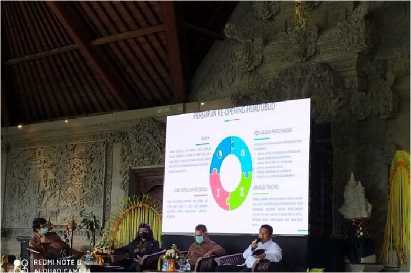
Figure 10. Dissemination of DMO-DG Strengthening at Royal Pita Maha Ubud Source: Balipost
CONCLUSION
The performance of homestay businesses during the Covid-19 pandemic experienced a drastic decline. Evaluation of the implementation of management of homestay businesses based on CHSE in the Ubud Tourism Area has been carried out on 30 homestay businesses with good implementation (76.20%), but still needs to be improved, for example on the parameter Setting the Distance on the Seat or Floor in the Reception Unit with a score of (50.67%) which means the implementation was quite good. The recovery plan for Homestay businesses in the Ubud Tourism Area in the new normal era is guided by strengthening human resources, strengthening operational resources, and strengthening administration and management. Recommendations
that can be given include (1) the Gianyar Regency Government needs to evaluate the parameters of CHSE certification and, facilitate CHSE-based health protocols for homestay actors (2) Tourism entrepreneurs are expected to be able to build synergy and support CHSE-based homestay management. (3) The homestay owner supports the CHSE certification program and forms an integrated network of homestay business owners in the Ubud Tourism Area. (4) Academics are expected to be able to map the tourism potential in the Ubud Tourism Area, which can be promoted with the activities of tourists staying at homestays.
REFERENCES
Kemenpar. 2020. Peraturan Menteri Pariwisata dan Ekonomi Kreatif/Kepala Badan Pariwisata dan Ekonomi Kreatif Nomor 13 Tahun 2020 Tentang Standar dan Sertifikasi Kebersihan, Kesehatan, Keselamatan, dan Kelestarian Lingkungan Sektor Pariwisata dalam Masa Penanganan Pandemi Corona Virus Disease 2019
Ritchie, Brent. 2004. Chaos, Crises and Disasters: A Strategic Approach to Crisis Management in the Tourism Industry. Tourism Management.
Sugiarti, Rini. 2012. Manajemen Krisis Candi Borobudur (Studi Deskriptif Kualitatif pada PT. Taman Wisata Candi Borobudur, Prambanan, dan Ratu Boko dalam Pelestarian World Heritage Pasca Erupsi Merapi). Fakultas Ilmu Sosial dan Humaniora. Universitas Islam Negeri Sunan Kalijaga Yogyakarta
Suteja, Mertha. 2012. Tri Hita Karana and World Peace, Bali Hinduism Philosophy of Life. Surabaya: Paramita.
Terry, George. 2000. Dasar‐dasar Manajemen, Jakarta: Bumi Aksara,2000.
Merdeka.com. 2020. “Pariwisata Terpukul Pandemi Covid-19, Bali Kehilangan Devisa Rp 9,7 Triliun per Bulan”. Sumber: https://www.merdeka.com/uang/ pariwisata-terpukul-pandemi-covid-19-bali-kehilangan-devisa-rp97-tril-iun-per-bulan.html. Diakses pada 19 Juni 2021.
http://ojs.unud.ac.id/index.php/eot
249
e-ISSN 2407-392X. p-ISSN 2541-0857
Discussion and feedback